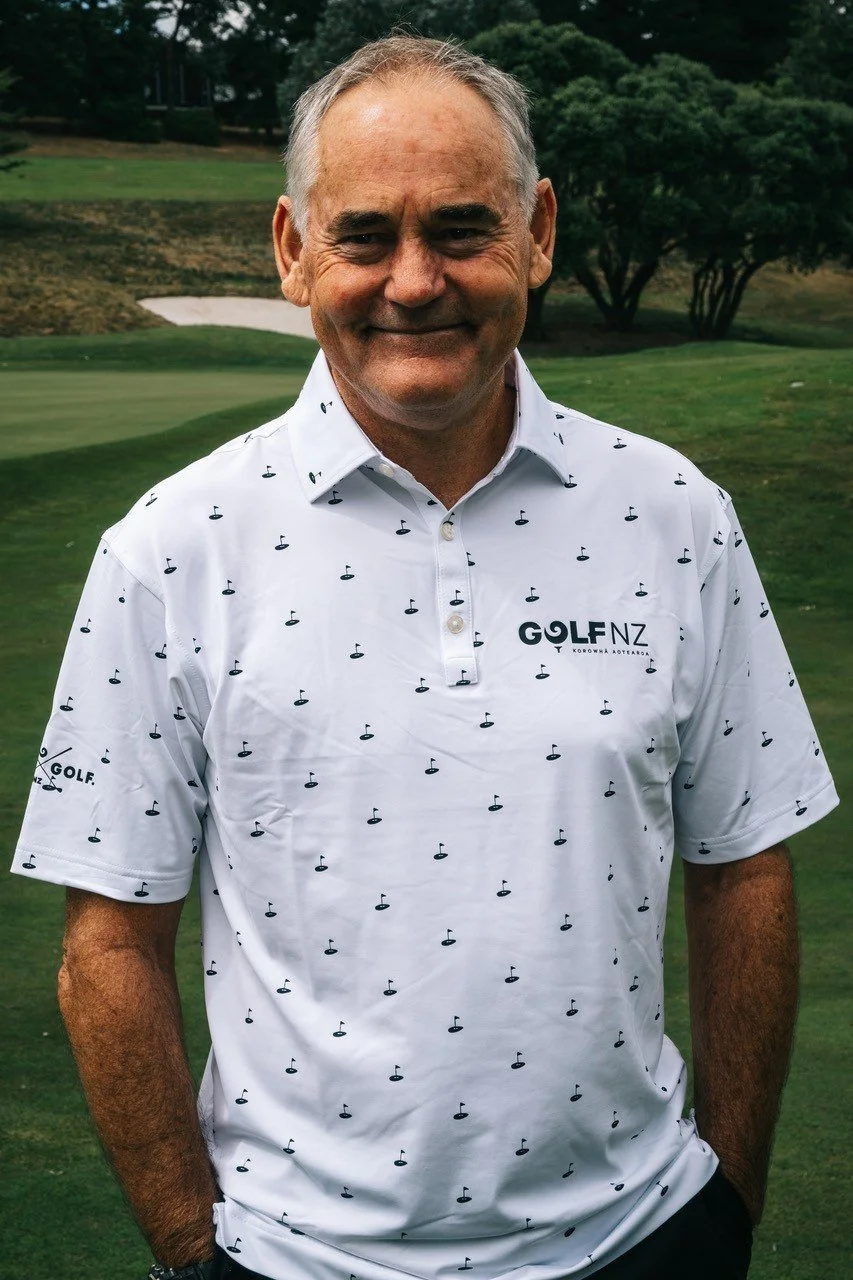National roadshow has been focusing or more than just golf
National roadshow has been focusing or more than just golf
The changing face of golf in New Zealand and the need for golf clubs to adapt to the new styles of those playing the sport – along with the types of golf they want to play – have been the key focus of a nine-month roadshow this year.
Caption: Stephen Gee who has been leading a national roadshow for Golf New Zealand. Photo credit: Golf New Zealand.
Golf New Zealand club and workforce development manager Stephen Gee has visited 50 golf club venues across the country since January with a comprehensive presentation on the sport’s new direction – encompassing aspects ranging from child and youth participation initiatives through to wildlife predator eradication programmes.
“Participation and relevance are the key themes for how golf is now being perceived in New Zealand,” said Gee.
“As a sport, golf is now far more accessible to a wider spectrum of the New Zealand public than it ever has been before. Golf New Zealand now has a broad range of player participation programmes for children, youth, women, Māori, or those with disabilities, and the rational of the roadshow was to keep club managers and their committees up to speed on where the sport is heading.
“We’re talking about six-hole tournaments, creating shorter drop in par three-only course designs for kids, free learn to play coaching events, socially focused wine and putting events for women, and a big push into mid-week twilight golf.
“Concurrently with growing participation, golf clubs throughout the country are also now re-purposing themselves as delivering community activity and hospitality hubs rather than single-purpose sporting destinations.
“That’s seeing golf clubs hosting a raft of community meetings from Rotary (humanitarian service) through to volunteer fire brigade, social events ranging from birthday parties through to weddings, and trading as licensed food and beverage venues where locals who aren’t necessarily golfers can pop in for dinner and a glass of wine – treating the clubhouse like a local restaurant and bar.”
Gee said he was particularly encouraged by the sport’s collaboration with the Department of Conservation in promoting the predator free 2050 programme during the roadshow -- aiming for the eradication of possums, stoats, weasels, and rats from the country’s golf clubs and their surrounding neighbourhoods.
“All of the clubs I met during the course of the roadshow understood the benefits of pest eradication on their courses. Golf New Zealand and DOC (Department of Conservation) are now well down the path of rolling out trapping initiatives in conjunction with environmental enhancement native tree and foliage planting programmes which are bringing back native wildlife to golf courses,” said Gee.
Gee said the Golf New Zealand roadshow had also emphasised the importance for golf clubs to take on a more corporate approach to their operations – developing strategic plans focused on sustainable growth of the sport within their specific location, and implementing a business dynamic to golf club’s day-to-day operations.
“We came along to the roadshow meetings with a menu of participation initiatives developed at both a Golf New Zealand level, and sharing some of the successful localised programmes clubs have developed. Not all the initiatives were necessarily appropriate for every club we visited, but the idea was that club managers and their committees could pick and choose which ideas they saw had the most merit for them individually,” he said.
“You could say that some golf clubs and their administrators ordered two and three course meals, while others have dived into the buffet to really load up their plates.”
The roadshow has seen Golf New Zealand present 50 workshops to 735 participants from more than 250 clubs – including some 140 clubs staffed by volunteers.
Over the course of the year, Gee visited clubs in Canterbury, Waikato, Taranaki, Tasman, Bay of Plenty, North Harbour, Northland, Otago, Aorangi, Tasman, Christchurch, Southland, Manawatu/Whanganui, Wellington, the West Coast. Visits were planned last month for Hawke’s Bay and Poverty Bay.
“The roadshow has been about helping clubs to become more resilient for the generations to come, coaching those volunteers who are on the club’s boards or committees on how to be the best stewards for the future of their clubs, and helping clubs understand the importance of good governance in today’s society,” he said.
Gee’s activities are one of the many support services which Golf New Zealand delivers its clubs and district branch members, alongside handicapping, course rating, DotGolf technology, marketing, public relations and communications, operational guidance, and tournament organisation expertise.

